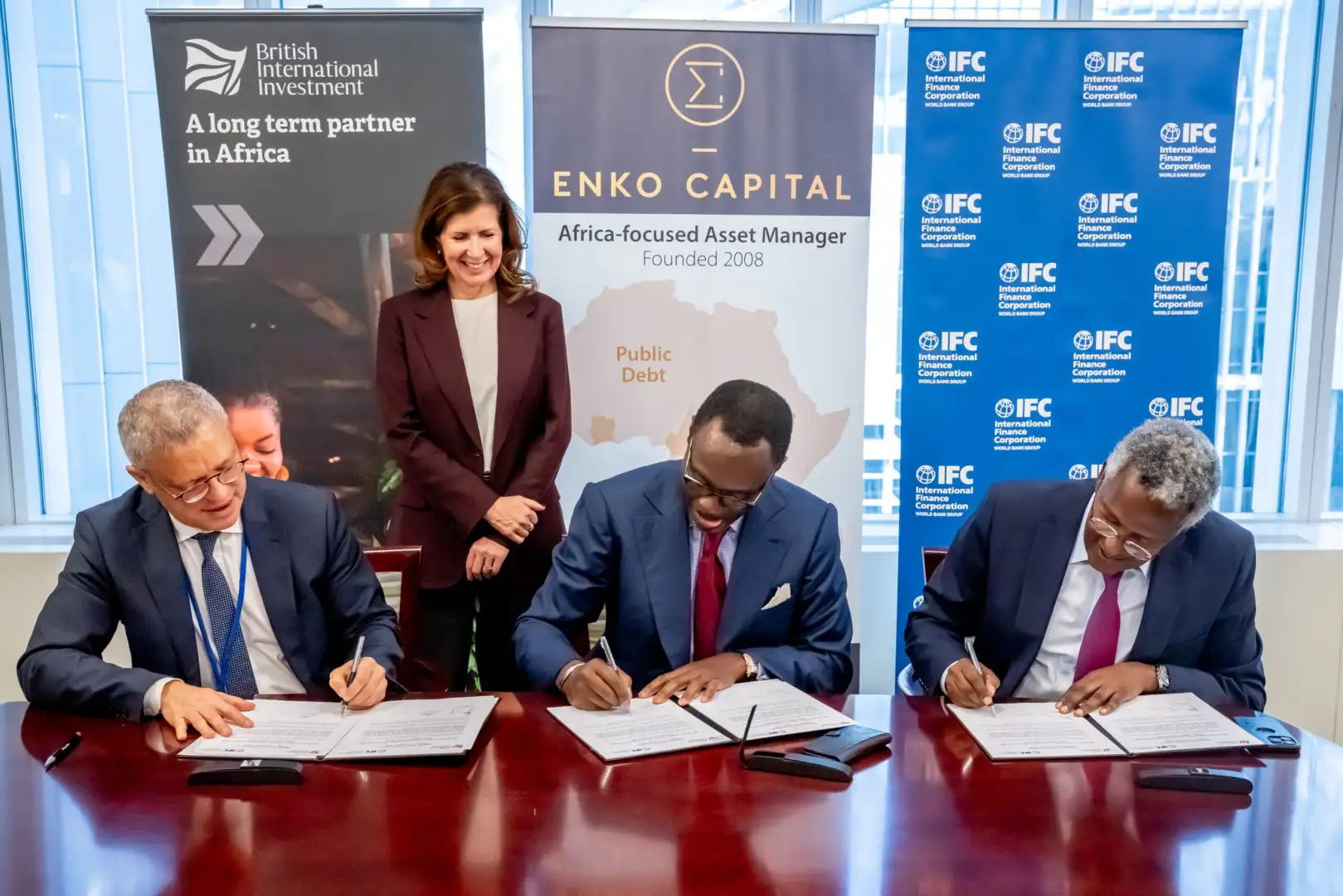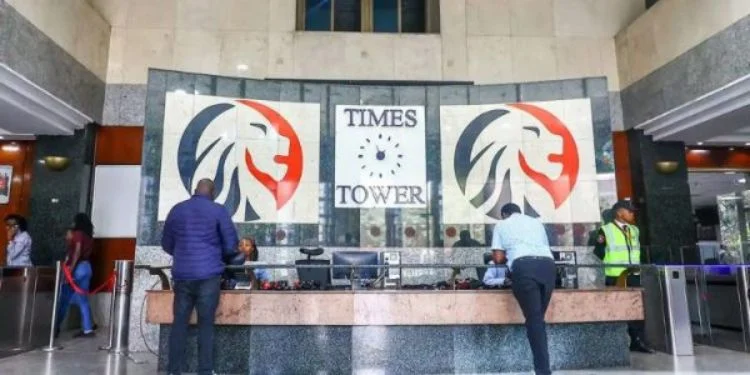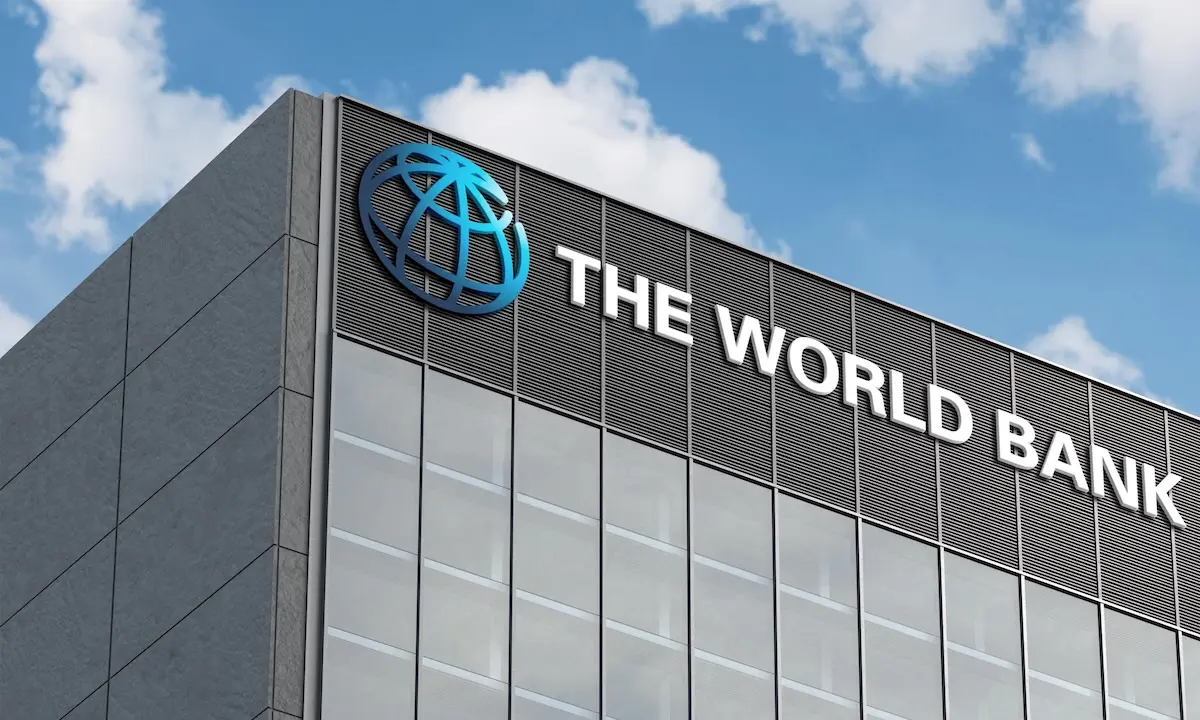In a significant move to address one of Africa’s most persistent economic challenges, British International Investment (BII), the UK’s development finance institution, has provided an anchor commitment to the Enko Impact Credit Fund, which has successfully raised $100 million at its first close. This landmark investment represents a strategic effort to unlock growth capital for mid-sized businesses across the African continent that have long struggled to secure adequate financing from traditional banking channels.
The fund’s first close attracted a diverse group of investors, including several development finance institutions (DFIs), commercial investors, African pension funds, and family offices. This broad participation signals growing confidence in private credit as an emerging asset class in African markets and reflects increasing recognition that innovative financing mechanisms are essential to support the continent’s economic development.
Build the future you deserve. Get started with our top-tier Online courses: ACCA, HESI A2, ATI TEAS 7, HESI EXIT, NCLEX-RN, NCLEX-PN, and Financial Literacy. Let Serrari Ed guide your path to success. Enroll today.
Addressing Africa’s Chronic Financing Gap
The financing gap for small and medium-sized enterprises (SMEs) in Africa represents one of the continent’s most significant obstacles to economic growth and job creation. According to estimates from the African Development Bank, African SMEs face a financing gap exceeding $136 billion annually, with mid-sized companies particularly underserved by existing financial infrastructure.
Traditional commercial banks in Africa have historically been reluctant to lend to mid-market businesses for several interconnected reasons. Risk assessment challenges, lack of collateral, limited credit history, perceived volatility in African markets, and regulatory constraints all contribute to a banking sector that overwhelmingly focuses on either large corporate clients or microfinance, leaving mid-sized enterprises in a precarious “missing middle.”
This financing gap has profound consequences for African economies. Mid-sized businesses are critical engines of job creation, innovation, and economic diversification. They represent companies that have grown beyond startup phase but haven’t yet achieved the scale or financial track record to access international capital markets or attract major institutional investors. Without adequate growth capital, these businesses struggle to expand operations, invest in new technologies, enter new markets, or increase their workforce.
Private credit funds like the Enko Impact Credit Fund offer an alternative financing model specifically designed to address these market failures. By providing more flexible terms than traditional bank loans, accepting different forms of collateral, offering longer repayment periods, and taking a more holistic view of business potential rather than relying solely on historical financials, private credit can unlock opportunities that conventional financing cannot reach.
Enko Capital’s Strategic Approach
Enko Capital, an investment firm with deep expertise in African markets, has structured its flagship private credit fund to provide tailored capital solutions to companies operating in sectors identified as critical to inclusive and sustainable growth across the continent. The fund’s sector focus includes agriculture, telecommunications, manufacturing, renewable energy, and financial services—industries that collectively form the backbone of Africa’s economic development trajectory.
The agricultural sector represents a particularly compelling opportunity for private credit investment. Agriculture employs approximately 60% of Africa’s workforce and contributes significantly to GDP across most African nations. However, agricultural businesses consistently struggle to access financing despite their economic importance. Mid-sized agricultural enterprises—such as food processing companies, agricultural input suppliers, commercial farming operations, and logistics companies serving agricultural supply chains—require capital to modernize equipment, expand storage facilities, improve distribution networks, and adopt new technologies. The Enko Impact Credit Fund aims to provide this growth capital while supporting food security and rural development.
Telecommunications infrastructure continues to require substantial investment across Africa, where mobile connectivity has transformed economic participation but where coverage gaps and infrastructure limitations persist. Mid-sized telecommunications companies, including tower operators, fiber optic network providers, rural connectivity specialists, and technology service providers, need capital to expand networks and improve service quality in underserved areas. By financing these businesses, the fund can contribute to closing the digital divide while generating financial returns.
Manufacturing remains underdeveloped across much of Africa, with the continent heavily reliant on imported goods despite possessing abundant natural resources and a growing workforce. Supporting mid-sized manufacturing enterprises can help drive industrialization, create formal sector employment, reduce import dependence, and add value to raw materials before export. The fund’s focus on manufacturing aligns with continental initiatives like the African Continental Free Trade Area, which aims to boost intra-African trade and industrial development.
Renewable energy represents both a critical development need and an attractive investment opportunity. Africa possesses extraordinary solar, wind, hydro, and geothermal resources but remains heavily dependent on fossil fuels and struggles with inadequate electricity access. Mid-sized renewable energy companies—including solar power developers, mini-grid operators, energy storage providers, and clean cooking fuel distributors—require growth capital to scale proven business models and expand access to clean, reliable energy.
Financial services companies that serve underbanked populations and businesses also fall within the fund’s mandate. Fintech companies, microfinance institutions expanding into SME lending, insurance providers, and payment platforms all play crucial roles in financial inclusion. By providing capital to these intermediaries, the fund can catalyze much broader access to financial services across African economies.
BII’s Strategic Rationale and Impact Thesis
British International Investment’s decision to anchor the Enko Impact Credit Fund reflects the institution’s evolved approach to development finance and its recognition that catalytic capital from DFIs can play a crucial role in establishing new markets and asset classes in developing economies.
Leslie Maasdorp, Chief Executive Officer at BII, emphasized the strategic importance of the commitment: “Our commitment to the Enko Impact Credit Fund reflects BII’s belief in the commercial potential of private credit in Africa and its role in closing the financing gap for mid-sized businesses. By anchoring the fund’s first close, our aim is to send a strong signal to other investors, attract additional capital and help build a viable private credit market that supports businesses critical to economic growth in Africa.”
This statement reveals several key elements of BII’s investment thesis. First, the institution believes private credit is commercially viable in African markets—that it can generate risk-adjusted returns sufficient to attract commercial capital, not just development-oriented investors. This contrasts with approaches that view development finance primarily as concessional or subsidy-dependent.
Second, BII explicitly positions its anchor commitment as a market-building intervention. By committing capital at the fund’s first close, BII reduces perceived risk for other investors who might otherwise hesitate to enter an emerging market or asset class. This “crowding in” of additional capital represents a core function of development finance institutions—using public or quasi-public capital to mobilize larger amounts of private investment.
Third, the commitment aligns with BII’s mandate to support businesses critical to economic growth in Africa. Rather than directly financing individual companies, BII’s fund investment approach allows a specialized manager like Enko Capital to make multiple investments across sectors and geographies, diversifying risk while scaling impact.
BII’s investment also reflects broader trends in development finance. Traditional development lending through banks has proven insufficient to meet Africa’s enormous capital needs. Blended finance approaches, where concessional capital from DFIs is combined with commercial investment, have gained prominence as a mechanism to finance development priorities while building sustainable markets.
One decision can change your entire career. Take that step with our Online courses in ACCA, HESI A2, ATI TEAS 7, HESI EXIT, NCLEX-RN, NCLEX-PN, and Financial Literacy. Join Serrari Ed and start building your brighter future today.
Enko Capital’s Perspective and Track Record
Alain Nkontchou, Managing Partner of Enko Capital, provided important context on the fund’s successful first close: “The successful first close of Enko’s flagship private credit strategy underscores growing investor confidence in Africa’s sustainable development through private credit. With the support of leading international institutional development and impact investors; and local partners, the Fund is strategically positioned to offer customised capital solutions to high-quality mid-market SMEs, unlocking growth, supporting job creation, and advancing sustainable development, while generating compelling risk-adjusted returns for our investors.”
Nkontchou’s statement highlights several critical aspects of the fund’s positioning. The emphasis on “growing investor confidence” acknowledges that African private credit has historically been viewed as high-risk and that this perception is beginning to shift as more investors recognize opportunities in the space. The mention of both international institutional investors and local partners underscores the fund’s hybrid approach, combining global capital and expertise with local knowledge and relationships.
The reference to “customised capital solutions” is particularly significant. Unlike traditional bank loans with standardized terms and requirements, private credit funds can structure deals to match the specific needs and cash flow patterns of individual businesses. This might include flexible repayment schedules aligned with seasonal revenue patterns in agriculture, revenue-linked financing for telecommunications infrastructure projects, or convertible debt structures that allow lenders to participate in upside growth potential.
Enko Capital’s focus on “high-quality mid-market SMEs” reflects a deliberate strategy to target established businesses with proven business models and management teams rather than early-stage or turnaround situations. This approach aims to balance impact objectives with commercial return requirements—financing companies that have demonstrated viability but need capital to scale.
The commitment to “compelling risk-adjusted returns” signals to commercial investors that this is not a concessional fund accepting below-market returns for development impact. Instead, Enko is positioning the fund as capable of delivering returns commensurate with the risks of African mid-market lending, making it attractive to profit-motivated investors including pension funds and family offices.
The Role of Local Capital
The participation of African pension funds and family offices in the Enko Impact Credit Fund represents a particularly encouraging development. Local capital participation provides several important benefits that international capital alone cannot deliver.
First, local investors typically have superior understanding of African business environments, regulatory landscapes, and cultural contexts. Their involvement brings valuable due diligence insights and network connections that can improve investment selection and portfolio company support.
Second, deploying African institutional capital into African businesses keeps wealth circulating within the continent rather than depending solely on external capital flows. This builds deeper, more resilient financial markets and reduces vulnerability to shifts in international investor sentiment or global financial conditions.
Third, when African pension funds invest in local businesses through vehicles like the Enko Impact Credit Fund, they create a virtuous cycle where retirement savings finance economic growth that, in turn, generates employment and income that support future pension contributions. This aligns long-term savings with long-term development in powerful ways.
African family offices, representing accumulated wealth from successful business ventures across the continent, bring both capital and entrepreneurial expertise. Many family office principals have built their own mid-sized businesses and understand the challenges of scaling operations in African markets. Their involvement provides credibility and practical guidance alongside financial resources.
BII’s Broader Private Credit Portfolio
BII’s commitment to the Enko Impact Credit Fund fits within a larger strategic focus on private credit as a key tool for development impact. The institution has made several significant private credit fund investments in recent years, each targeting specific market gaps or sectoral opportunities.
BluePeak Private Capital Fund II focuses on providing growth capital to mid-sized companies across Sub-Saharan Africa, with particular emphasis on financial services, healthcare, education, and infrastructure sectors. The fund employs flexible debt and equity-like instruments to support businesses at critical inflection points where additional capital can drive significant scaling.
The Africa Go Green Fund specifically targets renewable energy and climate-related investments, recognizing that Africa faces both an energy access crisis and increasing vulnerability to climate change impacts. By providing debt financing to clean energy projects and businesses, the fund aims to accelerate the continent’s transition toward sustainable energy systems while expanding electricity access.
African Rivers Fund IV takes a pan-African approach to mid-market lending, with investments spanning multiple sectors and geographies. The fund’s strategy emphasizes businesses that demonstrate strong governance, clear growth trajectories, and positive development impacts including job creation and local economic multiplier effects.
These investments collectively demonstrate BII’s conviction that private credit funds managed by experienced, locally-connected teams can achieve both commercial returns and meaningful development impact. By supporting multiple funds with different sectoral focuses and geographic emphases, BII diversifies its approach while building the broader ecosystem of private credit providers operating across Africa.
Challenges and Considerations
Despite the promising potential of private credit for African mid-market businesses, significant challenges remain. Currency risk represents a persistent concern, as most private credit funds raise capital in hard currencies like US dollars or euros while many portfolio companies generate revenues in local currencies that can be volatile. Effective hedging strategies or creative structuring that shares currency risk between lenders and borrowers will be essential.
Political and regulatory uncertainty in some African markets can affect business operations and debt repayment capacity. While Africa’s overall political stability has improved substantially in recent decades, country-specific risks require careful assessment and ongoing monitoring. Private credit funds must maintain rigorous due diligence processes and potentially avoid markets with excessive governance concerns.
Exit strategies for private credit investments require careful consideration. Unlike equity investors who can exit through sales to other investors or public market listings, private credit funds depend on borrowers’ ability to repay loans according to agreed schedules or to refinance with other lenders as businesses mature. Building refinancing capacity within African banking sectors is therefore crucial to the long-term viability of private credit as an asset class.
Competition for quality deals may increase as more private credit funds target African mid-market businesses. While this competition could theoretically benefit borrowers through better terms, it also raises concerns about deteriorating underwriting standards if funds chase limited opportunities. Maintaining discipline around credit quality and pricing will be essential for the sector’s sustainable development.
Looking Ahead: Building a Sustainable Private Credit Market
The successful first close of the Enko Impact Credit Fund, anchored by BII’s commitment, represents an important milestone in the development of African private credit markets. However, achieving the broader vision of private credit as a sustainable, scalable financing solution for mid-sized African businesses will require continued effort across multiple dimensions.
First, demonstrating strong performance and development impact in initial investments will be crucial to attracting additional capital to subsequent fund closes and to other private credit funds targeting African markets. Investors need evidence that the model works—that it can generate acceptable returns while supporting business growth and job creation.
Second, building local capacity in credit analysis, deal structuring, and portfolio management will help ensure that African private credit markets become self-sustaining rather than perpetually dependent on international fund managers. Training local professionals, establishing African-led fund management firms, and developing local currency financing capabilities all contribute to this objective.
Third, policy and regulatory environments must evolve to support private credit while protecting borrowers from predatory practices. Governments and financial regulators should consider frameworks that facilitate private credit while ensuring transparency, fair treatment, and appropriate consumer or business protections.
Fourth, collaboration between private credit funds, traditional banks, capital markets, and other financing providers can create more complete financial ecosystems. Private credit works best not as a replacement for other financing sources but as a complement that fills specific gaps in the capital structure.
The $100 million first close of the Enko Impact Credit Fund, with BII’s anchor commitment alongside other DFIs, commercial investors, African pension funds, and family offices, demonstrates that diverse investors recognize the potential of private credit to address Africa’s mid-market financing gap. If the fund successfully deploys capital to high-quality businesses in agriculture, telecommunications, manufacturing, renewable energy, and financial services—generating both financial returns and measurable development impact—it will provide a powerful proof point that can catalyze additional investment and help establish private credit as a permanent, vital component of African financial markets.
For the mid-sized businesses that will ultimately receive financing from the Enko Impact Credit Fund, this capital could prove transformative, enabling expansion plans that might otherwise remain unrealized, supporting job creation that strengthens local economies, and demonstrating that with the right financing structures, Africa’s “missing middle” can become a driving force for sustainable, inclusive economic growth across the continent.
Ready to take your career to the next level? Join our Online courses: ACCA, HESI A2, ATI TEAS 7 , HESI EXIT , NCLEX – RN and NCLEX – PN, Financial Literacy!🌟 Dive into a world of opportunities and empower yourself for success. Explore more at Serrari Ed and start your exciting journey today! ✨
Track GDP, Inflation and Central Bank rates for top African markets with Serrari’s comparator tool.
See today’s Treasury bonds and Money market funds movement across financial service providers in Kenya, using Serrari’s comparator tools.
Photo source: Google
By: Montel Kamau
Serrari Financial Analyst
21st October, 2025
Article, Financial and News Disclaimer
The Value of a Financial Advisor
While this article offers valuable insights, it is essential to recognize that personal finance can be highly complex and unique to each individual. A financial advisor provides professional expertise and personalized guidance to help you make well-informed decisions tailored to your specific circumstances and goals.
Beyond offering knowledge, a financial advisor serves as a trusted partner to help you stay disciplined, avoid common pitfalls, and remain focused on your long-term objectives. Their perspective and experience can complement your own efforts, enhancing your financial well-being and ensuring a more confident approach to managing your finances.
Disclaimer: This article is for informational purposes only and does not constitute financial advice. Readers are encouraged to consult a licensed financial advisor to obtain guidance specific to their financial situation.
Article and News Disclaimer
The information provided on www.serrarigroup.com is for general informational purposes only. While we strive to keep the information up to date and accurate, we make no representations or warranties of any kind, express or implied, about the completeness, accuracy, reliability, suitability, or availability with respect to the website or the information, products, services, or related graphics contained on the website for any purpose. Any reliance you place on such information is therefore strictly at your own risk.
www.serrarigroup.com is not responsible for any errors or omissions, or for the results obtained from the use of this information. All information on the website is provided on an as-is basis, with no guarantee of completeness, accuracy, timeliness, or of the results obtained from the use of this information, and without warranty of any kind, express or implied, including but not limited to warranties of performance, merchantability, and fitness for a particular purpose.
In no event will www.serrarigroup.com be liable to you or anyone else for any decision made or action taken in reliance on the information provided on the website or for any consequential, special, or similar damages, even if advised of the possibility of such damages.
The articles, news, and information presented on www.serrarigroup.com reflect the opinions of the respective authors and contributors and do not necessarily represent the views of the website or its management. Any views or opinions expressed are solely those of the individual authors and do not represent the website's views or opinions as a whole.
The content on www.serrarigroup.com may include links to external websites, which are provided for convenience and informational purposes only. We have no control over the nature, content, and availability of those sites. The inclusion of any links does not necessarily imply a recommendation or endorsement of the views expressed within them.
Every effort is made to keep the website up and running smoothly. However, www.serrarigroup.com takes no responsibility for, and will not be liable for, the website being temporarily unavailable due to technical issues beyond our control.
Please note that laws, regulations, and information can change rapidly, and we advise you to conduct further research and seek professional advice when necessary.
By using www.serrarigroup.com, you agree to this disclaimer and its terms. If you do not agree with this disclaimer, please do not use the website.
www.serrarigroup.com, reserves the right to update, modify, or remove any part of this disclaimer without prior notice. It is your responsibility to review this disclaimer periodically for changes.
Serrari Group 2025
















